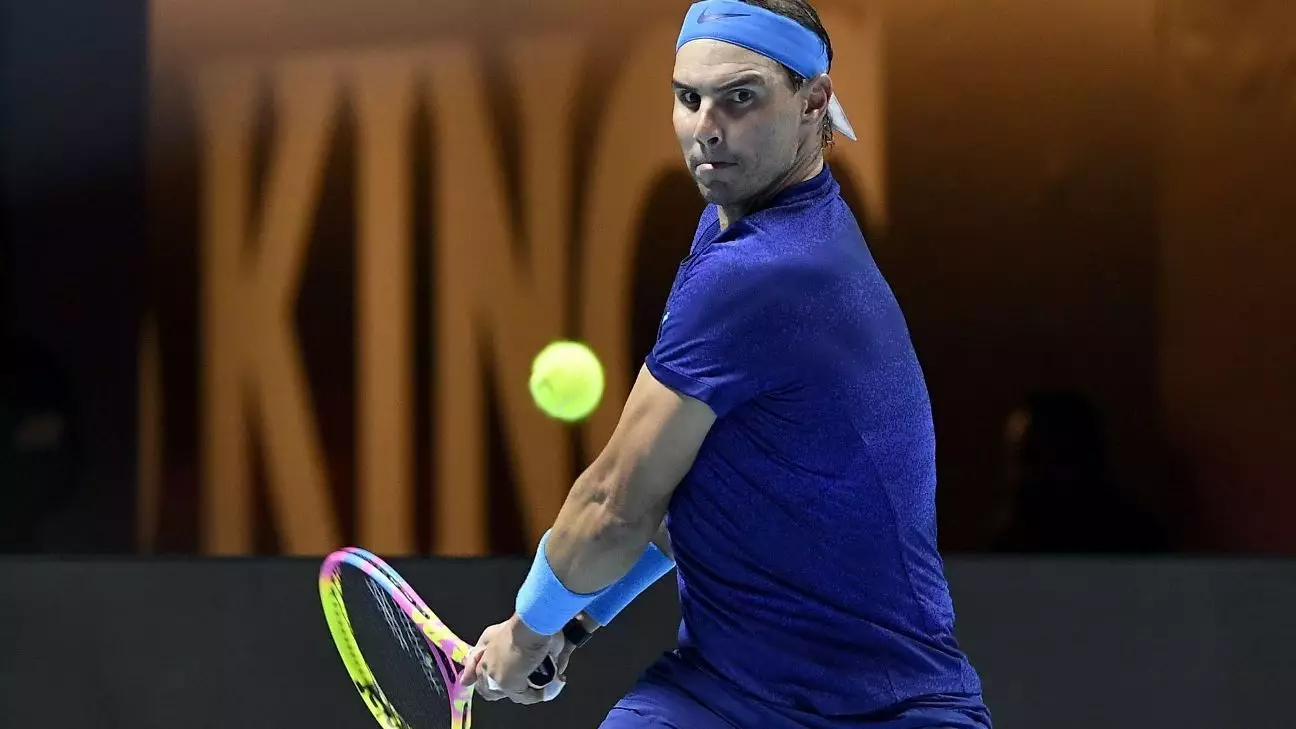In a noteworthy exhibition event held in Riyadh, Saudi Arabia, tennis legend Rafael Nadal faced off against rising star Carlos Alcaraz, resulting in a straight-sets loss of 6-3, 6-3. This match marked Nadal’s return to competitive play after taking a break since his exit from the Paris Olympics. Despite the loss, Nadal expressed satisfaction with his performance and resilience, especially as he gears up for the Davis Cup—his final professional challenge. His introspective reflections highlight not just the physical demands of returning to high-stakes competition, but also the emotional weight of nearing the end of an illustrious career.
With his retirement announcement looming, the series of matches leading up to the Davis Cup becomes immensely significant for Nadal. These encounters serve as crucial preparation in his final month on the tour, acting as a bridge to solidifying his legacy while supporting his national team. By framing his upcoming participation as an opportunity to contribute to the team, Nadal is navigating the precarious balance of personal ambition and collective responsibility. His desire to hone his skills and gain competitive momentum reveals the mindset of an athlete unyielding in his pursuit, even as he prepares to step away from the spotlight.
The Six Kings Slam also showcased the talent of the younger generation, with Jannik Sinner overcoming Novak Djokovic in the other semifinal through a hard-fought match. Of particular note is the controversy surrounding Sinner after his recent exoneration in a doping case. This swarm of intrigue adds an additional layer to the current tennis landscape as the younger players like Alcaraz and Sinner continue to challenge established giants. Their performances are reshaping the narrative of elite tennis, inviting discussions not only about athletic prowess but also about fair play and integrity in sports.
Nadal’s Journey: A Portrait of Resilience
Nadal’s admission of facing formidable opponents like Alcaraz emphasizes the adjustments necessary for athletes returning from a break. His acknowledgment of the gap since his last competitive outing is telling; it highlights the hurdles athletes encounter not only physiologically but psychologically. The defeat against a significantly younger adversary, described as an “animal” by Nadal himself, serves as a humbling reminder of the inexorable passage of time in sports.
As Nadal prepares for a third-place match against Djokovic, the upcoming games symbolize not just the continuing rivalry between these titans of tennis, but also a shared respect and acknowledgment of their respective legacies. Although the stakes in this exhibition aren’t about ATP points, they certainly resonate more deeply within the context of personal history. For Nadal, each match becomes a form of closure, an opportunity to solidify his contributions to the sport he loves, while also assuming a mentorship role for emerging talents like his opponent, Alcaraz.
In this critical juncture of his career, Nadal exemplifies the complexities faced by athletes at the twilight of their careers, embodying both the joy of competition and the poignancy of farewells.


Leave a Reply